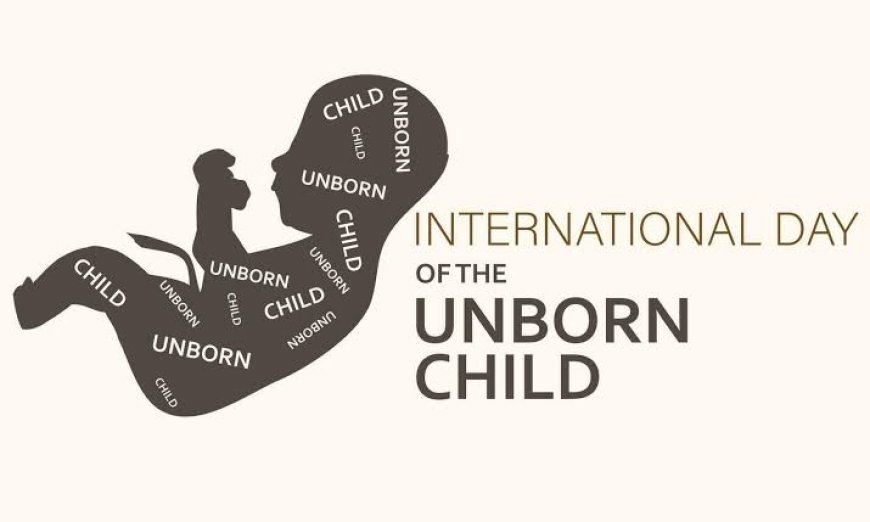International Day of the Unborn Child (IDUC) Protecting the Unborn.

Benjamin GBOR
The International Day of the Unborn Child is observed annually on March 25. It is a global observance that highlights the importance of protecting human life from conception.
As we remember this day, we reflect on the value and dignity of every human life and the need to safeguard the most vulnerable members of our society, the unborn.
The International Day of the Unborn Child was first celebrated in Argentina in 1999. It was established following Pope John Paul II's apostolic letter Evangelium Vitae (Gospel of Life), issued on March 25, 1995. In this letter, the Pope emphasised the importance of protecting human life from conception to natural death.
In 2001, the Pontifical Council for the Family, an organisation within the Roman Catholic Church, appealed to governments and international organisations to recognise March 25 as the International Day of the Unborn Child. Since then, several countries, including Argentina, Chile, and the Philippines, have officially recognised this day.
The global movement has since gained recognition from governments, international organisations, and civil society groups around the world. It seeks to promote a culture of life, where every human being is valued, respected, and protected.
Here in Nigeria, The International Day of the Unborn Child has a significant history, particularly among Catholic communities and pro-life organisations. Although it is not a widely observed or celebrated event in Nigeria, some groups and individuals commemorate the day with special Masses, prayer services, and awareness campaigns.
Human Life International, a global pro-life organisation, has been promoting the sanctity of human life and supporting pregnant women in need. They have also been involved in training nurses and healthcare professionals to provide pro-life counselling and support.
Despite progress in many areas, the unborn continue to face numerous threats, including abortion. Millions of unborn children are aborted every year, often due to societal pressure, lack of support, or inadequate access to resources.
In some cultures, new-borns are abandoned or killed due to gender, disability, or other factors.
Many pregnant women, especially in developing countries like Nigeria, die due to a lack of access to quality healthcare, nutrition, and other essential services.
As we observe the International Day of the Unborn Child, we urge governments, policymakers, and individuals to take concrete actions to protect the unborn.
Governments can do this by providing access to quality healthcare, nutrition, and other essential services to ensure the well-being of both mother and child. Societies should be encouraged to value and respect human life at all stages, from conception to natural death. Supporting laws and policies that protect the unborn, such as banning abortion, providing alternatives to abortion, and promoting adoption, is essential.
The International Day of the Unborn Child however, serves as a poignant reminder of our collective responsibility to protect and defend human life. As we commemorate this day, let us recommit ourselves to creating a world where every human being is valued, respected, and protected from conception to natural death.













































